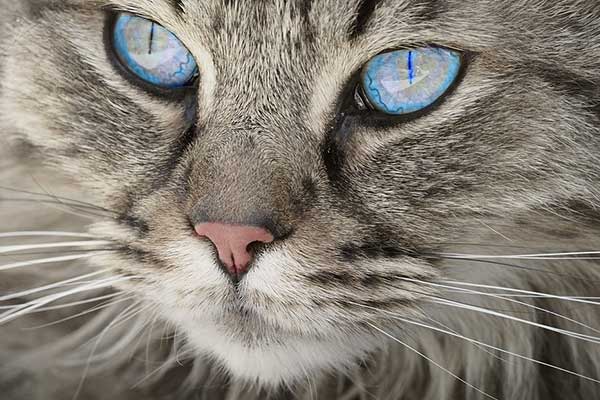Although independent, the cat remains an animal subject to many diseases and health problems. Cat owners therefore have every interest in insuring their animal to be reimbursed for veterinary costs. Find out what cat insurance really is and what it covers through its different formulas.
Summary
What is cat insurance?
A cat health insurance, and more generally an animal mutual, makes it possible to cover the health costs of its four-legged companion.
Depending on the formula chosen, in the event of an accident or illness, the insurance company reimburses you for part or all of the costs of consultations with the veterinarian, hospital costs, surgical procedures and medical care.
Thanks to the subscription of a cat insurance, you can finance the necessary care of your animal in case of need.
However, animal health insurance does not cover civil liability.
The different formulas
The basic or economic formulas reimburse the costs only when your animal encounters a major health problem: accident, surgery, hospitalization, X-ray. The guarantees are then limited and you receive no reimbursement for routine veterinary care.
Intermediate formulas also insure certain costs related to benign or chronic illnesses, or to certain dental care (tooth extraction, for example).
And with a premium formula, all your costs will be reimbursed in the form of an annual flat rate (vaccine, deworming, antiparasitics, health check, etc.).
On the other hand, some insurers offer additional assistance services. During the hospitalization of its master, the cat can be taken care of in a kennel. And in the event of loss of the animal, the service can help you with the search by paying you the costs of classified advertisements, for example.
Note, there is also death insurance. They cover your cat’s burial costs.
Finally, be aware that regardless of the formula chosen, there is an annual ceiling for the care of the animal. This ranges between 700 and 2900 euros depending on the insurance company. And a deductible is always your responsibility (about twenty euros per treatment sheet). You should also know that the ceilings of guarantees and deductibles increase when the animal gets older.
What is supported?
Cat insurance covers:
- advanced veterinary expenses. The reimbursement rate varies depending on the contract;
- vaccine, sterilization, surgery and radiology costs. Please note that the coverage of costs depends on the formula selected. On the other hand, vaccine costs are often fixed at 35 euros per year. And sterilization must be medically prescribed;
- assistance following a chronic illness or accident;
- treatment (renewal) against piroplasmosis.
The amount of veterinary costs is probably the main reason you buy insurance for your cat, so make sure that the levels of cover offered are suitable for your needs and be careful not to limit yourself in time.
Check that your feline health insurance covers the cost of consultations, exams, tests, X-rays, MRIs, medication, bandages, surgery and hospitalization, and if you would also like to consider areas such as physiotherapy , acupuncture and hydrotherapy.
Some policies cover behavioral disorders and their treatment, as well as a special diet, if recommended by a veterinarian as part of the treatment of a health problem.
The interesting options of mutual insurance for cats
Coverage of childcare costs
What would happen if you had to go to the hospital unexpectedly? Would you be able to ask a friend or relative to care for your pet on a short-term basis? If not, your cat may need to stay in a cattery, which can be expensive. Some insurers take this into account and cover emergency costs up to a certain amount.
Take your cat on a trip
Cat insurance can cover accidents, illnesses and emergencies while you’re on vacation with your pet, or emergencies that prevent or shorten your vacation.
Vacation cover and pet travel may be included in your policy as standard, or you may need to purchase extra to cover your trip.
Dental care
Dental costs for cats can be high, so pay attention to policy exclusions as this can quickly cost you dearly.
Death following an accident or illness
In some insurance companies, the insurer will pay a lump sum if your cat dies as a result of an accident or illness. Some insurance policies may also provide for the cremation of your four-legged friend if he dies as a result of an accident or illness.
Alternative therapies
Alternative therapies such as homeopathy, massage, and acupuncture can be helpful treatments for felines as well as humans. Not all insurance policies cover these kinds of therapies, but some do, so compare options to find the best one for your cat.
Why insure your cat?
Diseases and accidents can affect a cat. Among them, colds, runny eyes… Taking out cat insurance saves on your veterinary budget, especially when you know the amount of visits (between 25 and 100 euros), and that of drug prescriptions (between 60 and 200 euro). Surgical procedures can also cost up to 1500 euros.
On the other hand, cat insurance covers basic care costs such as sterilization or vaccination. And depending on the formula selected, coverage in the event of an accident may be complete.
Finally, in the event of loss of your animal, the assistance guarantee can help you find it.
What are the conditions for insuring a cat?
For cat insurance to be effective, the animal must be identified by a tattoo or an electronic chip.
He must also be up to date with his vaccines and be between 3 months and 10 years old. Indeed, cats 10 years and older are not insurable. Note that some insurers set the limit at 7 years, the age when health concerns appear or worsen.




